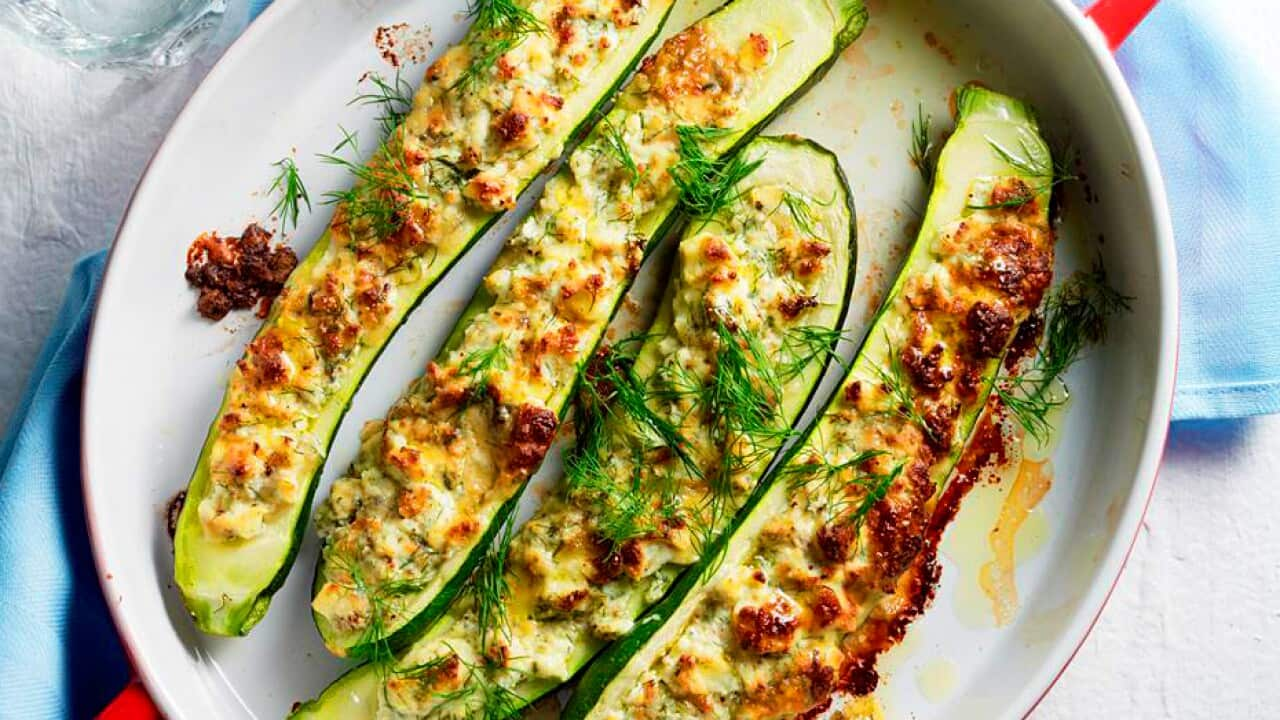Cooking and eating can generate a lot of pleasure. So if you’re currently in lockdown, why not use the power of food to inspire your mood and improve your sense of emotional and physical wellbeing?
“It’s natural for our self-motivation to be low during a lockdown and for us to think about the things we can’t do [with food], like eat out at restaurants,” Accredited Practising Dietitian and spokesperson for Dietitians Australia, tells SBS.
“But we can also flip the situation and find another way to look at things. Being at home could present a perfect opportunity to turn things around and start to look for new inspiration.”
By rebuilding your trust with food, you can restore the trust between yourself and your body.
Dynan encourages people to re-energise the process of cooking and eating by strengthening their natural connection with food. “[Before COVID-19], lot of us actually started to lose our connection with food because we had a ‘get food fast’ mentality’. So why not take some time now to connect with food again?
"You can learn how to cook or start to grow some of our own produce, even if it's herbs on the balcony. By rebuilding your trust with food, you can restore the trust between yourself and your body.”
Decrease stress and love your food
Dynan says an easy way to restore the connection with food is to eat mindfully. That means seizing moments to observe, touch, taste, smell and sense the food as you’re eating it.
“When you eat, sit down, eat slowly and chew your food to really taste it. Also, let your body guide you in relation to the hunger that you're experiencing. Ask yourself if the hunger is from your stomach or is it from your mind, because you’re stressed or tired: where is that signal coming from?”
If we have a routine, then we don’t really need to give the fine details so much brain space and we can focus on big picture stuff.
Of course, if you feel stressed out by having to cook three meals a day while juggling the realities of lockdown life, it’s hard to find the time to remain mindful. This is where a food routine may assist.
“Routines are really helpful to help us put aside some of the anxiety that we're holding [about ‘what to eat next],” Dynan says. “If we have a routine, then we don’t really need to give fine details so much brain space and we can focus on big picture stuff.”
When creating a routine, consider what you want your day to look like, when you want to eat and the kinds of meals you want to cook. Plan meals ahead of time, batch cook and freeze dishes to enjoy at your convenience.
Let vegetables inspire you
Cooking with herbs, fruits and vegetables is another way to easily connect with food. Be mindful to use in-season ingredients, noting the food came from.
Dynan reminds us that eating a variety of fibre-filled vegetables can help to feed the good bacteria in our gut microbiome. “We know that a healthy gut microbiome supports our mood and our overall health.”
Dynan suggests drawing vegetable inspiration from other countries, cooking traditional recipes from across the world that hero vegetables. “International recipes can really help you to try veggies that you've never tried before. Another option is to theme your dinners according to different cuisines around the world."
READ MORE

The ultimate vegetable lasagne
on food and nutrition for people in self-quarantine also stresses the importance of a high fibre diet while in lockdown.
“Fibre contributes to a healthy digestive system and offers a prolonged feeling of fullness, which helps prevent over-eating,” WHO states.
The organisation encourages people to have vegetables as well as fruit, pulses and wholegrain foods in all meals.
“Wholegrains foods include oats, brown pasta and rice, quinoa and whole-wheat bread and wraps, rather than refined grain foods such as white pasta and rice, and white bread.”
Forget perfect and aim for achievable
WHO also reminds us to stay hydrated by drinking lots of water while in lockdown. “Cut back on alcohol and avoid drinking lots of caffeinated products, as this may lead to dehydration and can negatively impact your sleeping patterns,” WHO advice reads.
Of course, the main focus should be on moderation, not deprivation. That’s why Dynan advocates for a healthy diet, low in saturated fats, salt and sugar, with occasional treats allowed.
She says if you feel positive about food and connected to your meal when eating, then it’s more likely you’ll make better food choices most of the time and feel happier about eating.
“Our goal is not perfection,” Dynan concludes. “It's really about what you do most of the time that makes the difference to your health.”
Love the story? Follow the author here: Instagram









